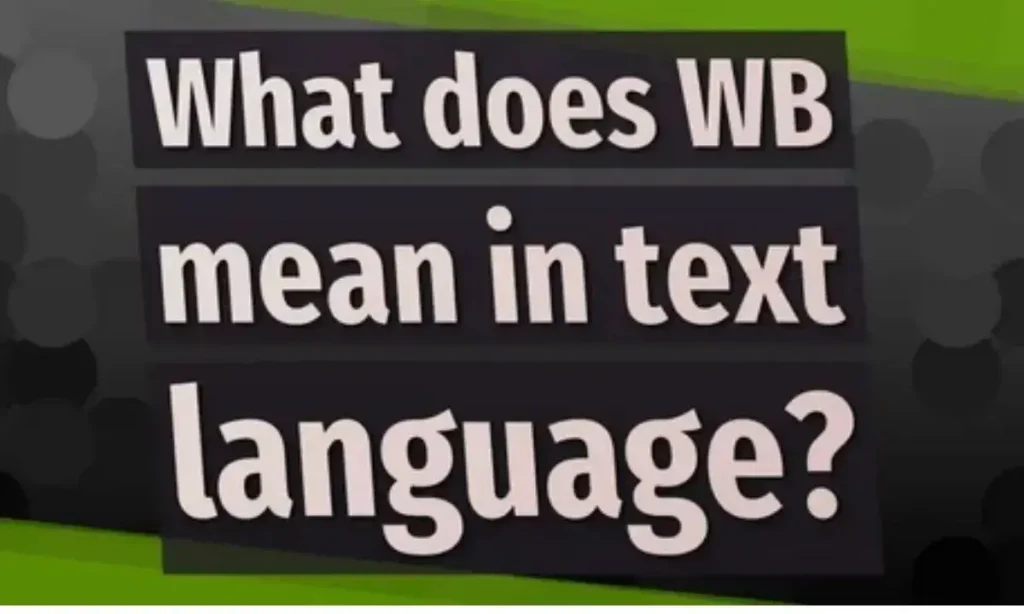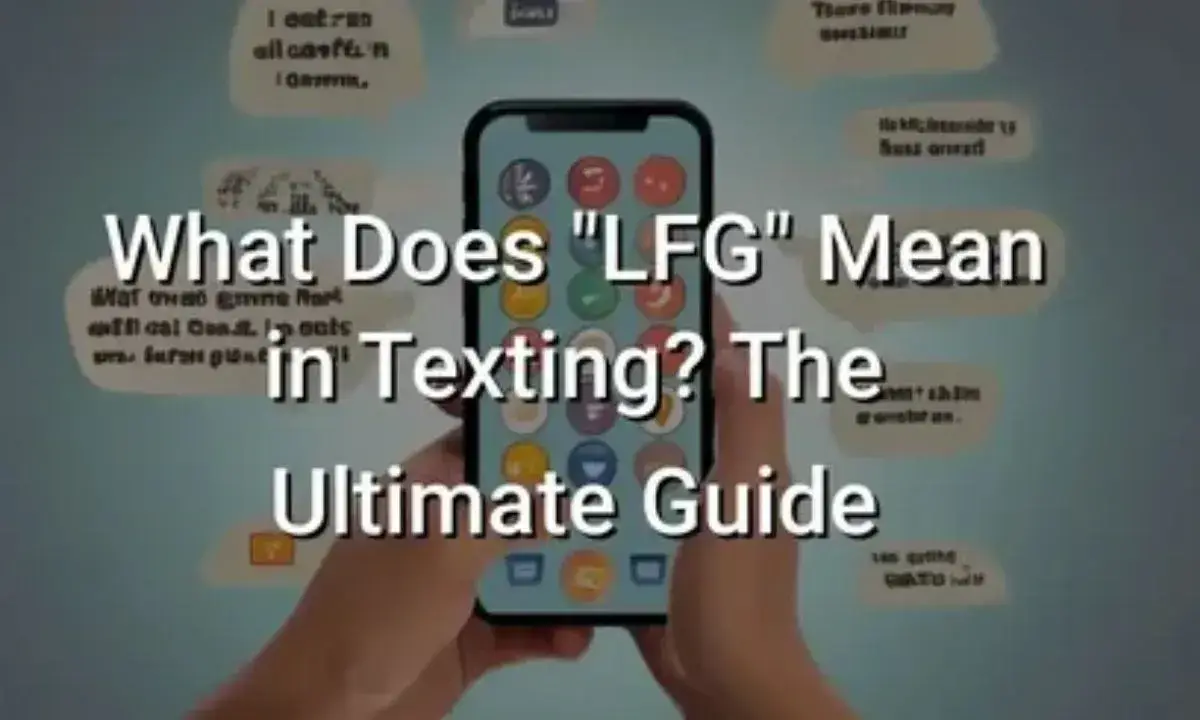In today’s fast-paced digital world, acronyms dominate texting, social media, and even gaming chats. One abbreviation that often pops up is WYTB. If you’ve seen it in a group chat, a DM, or on a dating app and wondered what it means, you’re not alone. Understanding this term helps you connect smoothly, avoid misunderstandings, and communicate with confidence in informal and semi-professional settings.
This article dives deep into WYTB, exploring its definition, history, usage across contexts, and nuances that every digital communicator should know.
Definition & Meaning of WYTB
WYTB stands for “What You Talking Bout?” It’s an informal abbreviation used to ask for clarification in a playful, casual way. Unlike the more formal “What do you mean?”, WYTB often carries a humorous, friendly, or teasing tone.
Examples of WYTB in Conversation:
- Text Chat:
Friend 1: “I just bought a llama.”
Friend 2: “WYTB?” - Gaming Chat:
Player 1: “I accidentally blew up the base.”
Player 2: “WYTB?! That was our last checkpoint!” - Social Media Comment:
“WYTB? That meme makes no sense 😂”
Key point: WYTB is rarely used in professional emails or formal communication. It’s tailored for quick, informal exchanges where context and tone are understood between participants.
Background & History
The phrase “What You Talking Bout?” traces its roots back to the 1980s sitcom Diff’rent Strokes, where actor Gary Coleman famously said, “Whatchu talkin’ ‘bout, Willis?” Fans of the show quickly adopted the line into casual speech.
With the rise of SMS, instant messaging, and online forums in the late 1990s and early 2000s, the phrase evolved into the shorthand WYTB. Its adoption grew with social media platforms like Twitter/X, Discord, and Reddit, as users sought quick, playful ways to respond in group chats or comment threads.
Today, WYTB is part of a wider trend of text messaging abbreviations influenced by pop culture, gaming communities, and youth communication habits.
Usage in Various Contexts
WYTB is versatile and appears in multiple digital environments. Let’s break it down:
- Casual Texting:
Friends and family often use WYTB to react to surprising or confusing messages. - Social Media:
On platforms like Twitter/X, Instagram, and TikTok, WYTB comments convey curiosity or playful disbelief. - Gaming Communities:
Gamers use WYTB to clarify unexpected actions or strategies in team-based games. - Dating Apps:
WYTB appears in bios or chat to initiate playful conversation, signaling humor and casualness. - Professional Settings:
Rarely used; if deployed, it may be misinterpreted as informal or even disrespectful.
Common Misconceptions & Clarifications

Many people misinterpret WYTB because it seems abrupt or confrontational. Let’s clarify:
| Misconception | Reality |
|---|---|
| WYTB is rude | Not inherently; tone depends on context. Usually playful. |
| Only Gen Z uses it | Popular with younger audiences, but older users who know pop culture references use it too. |
| WYTB = aggression | Often humorous or curious rather than confrontational. |
Tip: Pay attention to context, punctuation, and relationship dynamics to understand the intended tone.
Similar Terms & Alternatives
WYTB isn’t alone in the world of texting abbreviations. Here are related terms:
| Term | Meaning | Usage Context | Tone |
|---|---|---|---|
| WDYT | What Do You Think? | Casual, professional | Neutral |
| IDK | I Don’t Know | Universal | Neutral |
| IKR | I Know, Right? | Agreement | Friendly, casual |
| WTF | What The F*** | Shock, surprise | Informal, potentially offensive |
Using these alternatives depends on context and relationship with the recipient. WYTB stands out for its playful and slightly humorous tone.
How to Respond to WYTB
Responding to WYTB depends on the tone and context. Here are examples:
- Casual Friendly Reply:
“Just saying I won the game last night 😂” - Clarifying Reply:
“I meant the meeting got rescheduled to 3 PM, not 2 PM.” - Humorous Response:
“WYTB? The llama walks into the room!”
Key principle: Match tone, avoid overexplaining, and keep responses concise to maintain flow.
Regional or Cultural Differences
WYTB’s usage varies slightly across regions:
- United States: Most common, rooted in AAVE and pop culture.
- UK & Australia: Less frequent, may be understood among younger internet-savvy audiences.
- Asia & Non-English Speaking Countries: Recognized mainly by those active on international platforms or familiar with Western pop culture.
Cross-cultural misinterpretation is rare but possible. For example, someone might interpret WYTB as rude if unaware of the playful tone.
Comparison with Similar Terms
WYTB is often confused with phrases like:
- “What do you mean?” – More formal, neutral tone.
- “What’s that about?” – Casual but slightly inquisitive, less playful.
- “WTF?” – Shocked or confrontational; stronger emotion.
| Phrase | Tone | Context | Example |
|---|---|---|---|
| WYTB | Playful, curious | Informal chats | “WYTB? That meme is wild!” |
| WDYT | Neutral | Casual/professional | “WDYT about the report?” |
| WTF | Aggressive/shocked | Informal | “WTF happened to the server?” |
Usage in Online Communities & Dating Apps
Online communities amplify WYTB usage:
- Discord & Reddit: Quick replies in threads or DMs; often paired with emojis.
- TikTok & Instagram: Used in captions or comments to react to surprising trends.
- Gaming Apps: Helps clarify actions in multiplayer games.
- Dating Apps: Signals humor and approachability. Example: “WYTB if you could travel anywhere tomorrow?”
The key is its light-hearted tone—it conveys curiosity without demanding serious explanation.
Hidden or Offensive Meanings
While WYTB is usually harmless, misuse can cause confusion:
- Using it in a professional email may seem dismissive.
- All caps WYTB may appear aggressive online.
- Combining WYTB with harsh emojis or language could change perception from playful to confrontational.
Always gauge context before sending.
Suitability for Professional Communication
WYTB is rarely appropriate for formal settings. Consider alternatives:
| Informal | Professional Alternative |
|---|---|
| WYTB? | Could you clarify your point? |
| IKR | I agree completely |
| WTF | That’s surprising; could you explain? |
Even in casual work chats, stick to alternatives to maintain professionalism.
FAQs About WYTB
Q1: Is WYTB only used by Gen Z?
A1: Mostly younger audiences, but anyone familiar with pop culture or AAVE may use it.
Q2: Can I use WYTB in a professional chat?
A2: It’s best avoided; stick to neutral alternatives like “Could you clarify?”
Q3: Does WYTB have hidden meanings?
A3: Rarely. Tone and context matter most. It’s primarily playful or curious.
Q4: How does WYTB differ from WTF?
A4: WYTB is playful and informal, while WTF often conveys shock or frustration.
Q5: Can WYTB appear in dating app conversations?
A5: Yes, it’s commonly used to show humor or curiosity in lighthearted chats.
Conclusion
WYTB, or “What You Talking Bout?”, is a fun, informal abbreviation that thrives in casual texting, social media, gaming, and even dating apps. Its roots in 1980s pop culture, combined with modern texting trends, make it a playful tool for digital communication.
Understanding WYTB ensures you:
- Respond appropriately in casual conversations
- Avoid miscommunication across cultural and generational lines
- Navigate online communities and dating apps confidently
Whether you’re clarifying a surprising message, reacting humorously in a group chat, or exploring slang used by younger generations, WYTB keeps conversations engaging and playful.
By learning the meaning, context, and subtle nuances of WYTB, you’re equipped to communicate clearly, connect smoothly, and stay on top of digital conversation trends.

Ember Clark is an expert blogger passionate about cartoons, sharing captivating insights, trends, and stories that bring animation to life for fans worldwide.

